I’m sitting writing this on a sunny afternoon in Glasgow, basking in the knowledge of our “innovative and ambitious” project being one of the first CATE awards to a Scottish university after the Collaborative Award for Teaching Excellence was opened up to Scottish HE institutions for the first time last year. The judges reported it as “ground-breaking”, providing students with access to “life-changing” experiences – so you can guess our whole team are over the moon!
The full implications of receiving national recognition for teaching excellence will take some time to sink in, so I am trying to consider how best to share some of the other impacts and benefits I hope it will have on our key stakeholders – specifically our students, staff and our institutions. Whilst preparing our CATE submission has been a challenging and time-consuming process (particularly gathering the supportive evidence), it has helped us retrospectively clarify and evaluate the wider and sometimes less obvious impacts of our collaboration – a really worthwhile exercise in its own right. Perhaps more importantly, I am confident it has helped us develop the skills and insight to create and deliver many more enhanced and exciting learning initiatives.
But why should you read my personal account of our journey I hear you ask? Well, hopefully you will agree with the judges that PEETS provides an “innovative model for other international collaborations…which enriches the employability prospects of students and career experiences of staff in HEIs and industrial partners”. And I am confident that there will be at least a couple of elements of our unique initiative that could be applied to your own context and enhance your own teaching and learning provision. So as well as outlining our project, providing links to some of our resources, I will also share some of the “key tips” we used in preparing our CATE application which may help support your own future applications.
The PEETS initiative
PEETS is our multidisciplinary, intercultural and international mobility initiative which stands for Promoting Excellence in Employability and Transversal Skills – (skills that are readily transferable and flexible). Essentially it involves around 50 students and staff from different disciplines and three European universities working together on an annual project to develop their own employability skills through a number of industry informed activities. Our PEETS website contains more details including photos and videos.
Partnership
We are a multidisciplinary team from Glasgow Caledonian University (GCU) Scotland; Lahti University of Applied Science (LAMK) Finland; The Hague University of Applied Science (THUAS) The Netherlands, and industry collaborator Constructionarium (Scotland) Ltd.
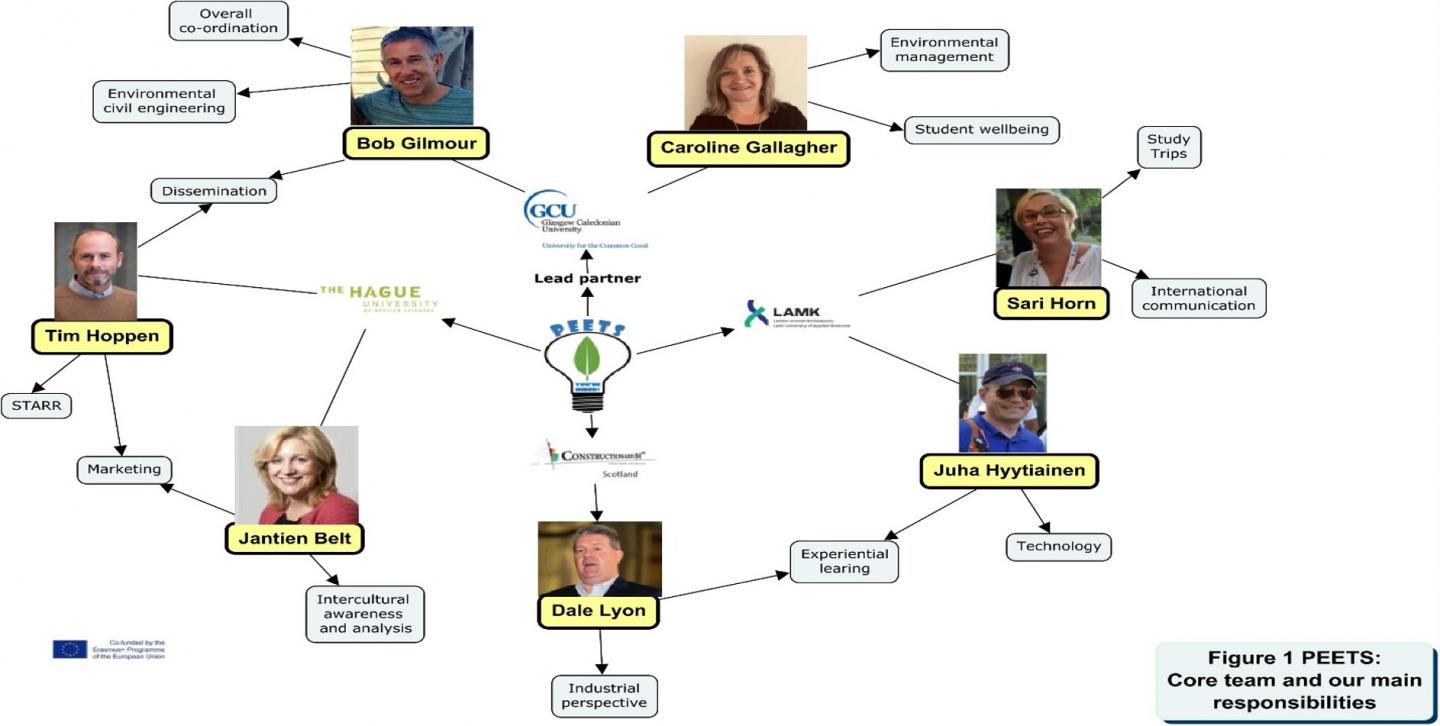
In 2016 we were awarded a three-year €294,000 Erasmus+ Strategic Partnership. Collectively, we used this as a stepping stone to develop our self-sustaining PEETS initiative.
Together we created industry informed, multidisciplinary and intercultural learning designs and resources to enhance the professional development of our students and staff. Working together can be pretty challenging so we created our annual collaborative cycle which illustrates how we managed our various activities throughout the year.
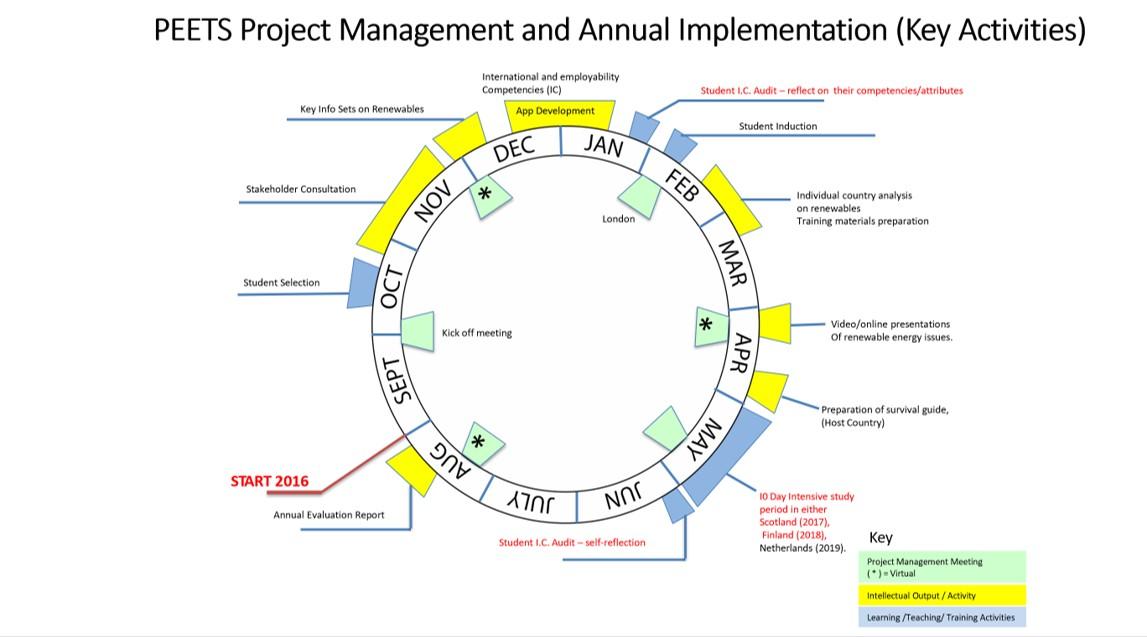
Outputs and outcomes
PEETS cuts across thematic priorities and delivers numerous outputs/outcomes associated with education for sustainable development, intercultural learning, employability and staff development. The approaches we took to enhance students’ professional development included:
- Researching skills for the renewables sector
- Group work (with up to 14 nationalities) - developing competencies and transferable skills
- Development of videos and blogs
- Construction of renewables facilities (windturbines/solar panels, water pumps)
- Industry visits (eg Scottish Power, Cruachan Hydro-power scheme, ABB – multinational technology company Helsinki. Sustainable The Hague)
- ICApp – student app monitoring international competency development
- Annual 10-day international intensive study period (ISP) for 48 students, mentors and staff from the three universities in Scotland, Finland or the Netherlands
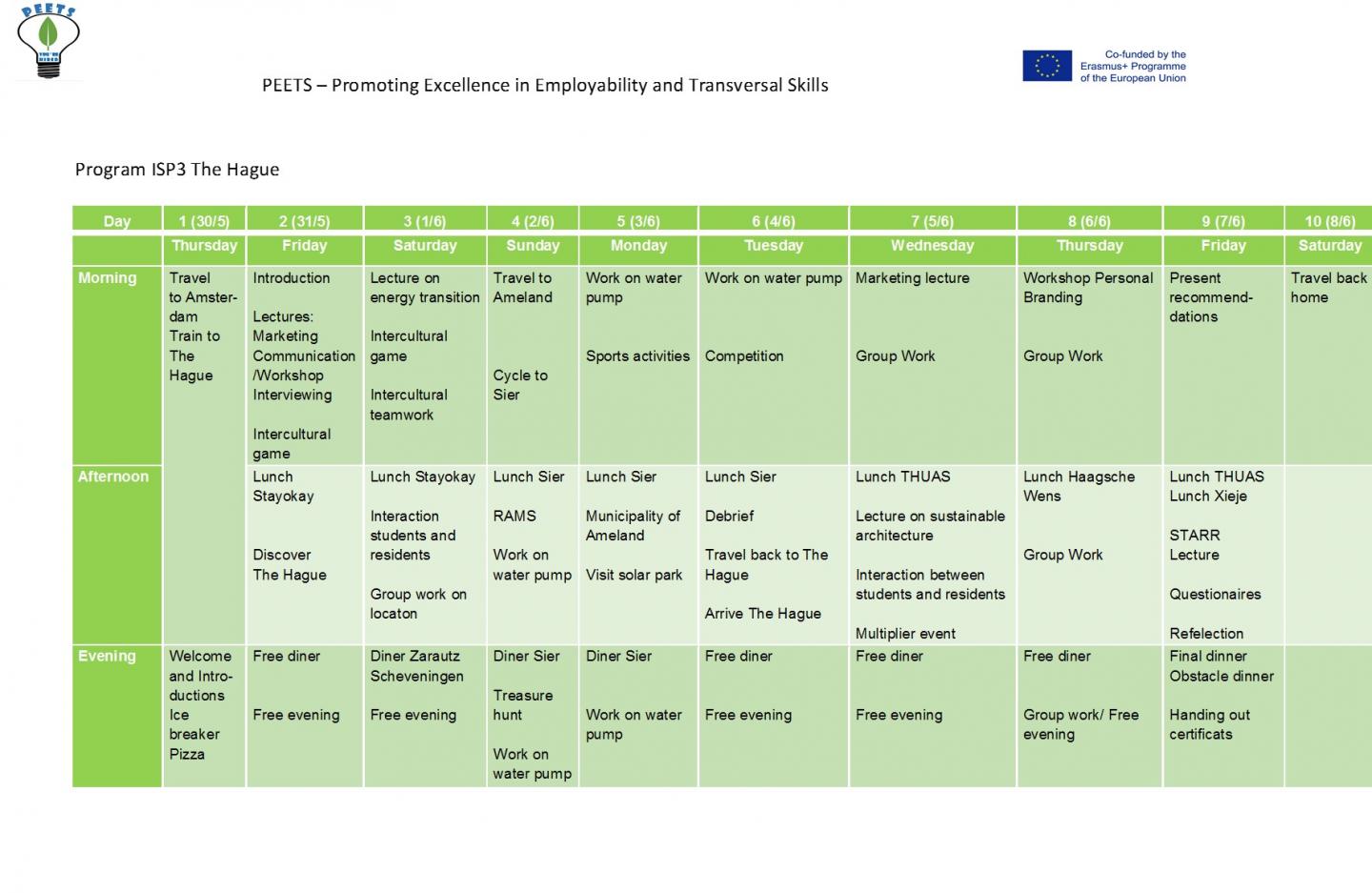
Dissemination and impact
It’s amazing to think that already 50,000 people have engaged with the outputs from PEETS. Even more amazing to realise that they are based in 10 countries across three continents. Our dissemination was really influenced by the team presenting at prestigious conferences run by Advance HE, Universities UK International, EAIE and the British Council.
Most significant output/impact?
Apart from the joy and development exhibited by our PEETS participants, perhaps one of my favourite outputs – and one that consistently draws significant interest from those who see it - is our “concept map”.
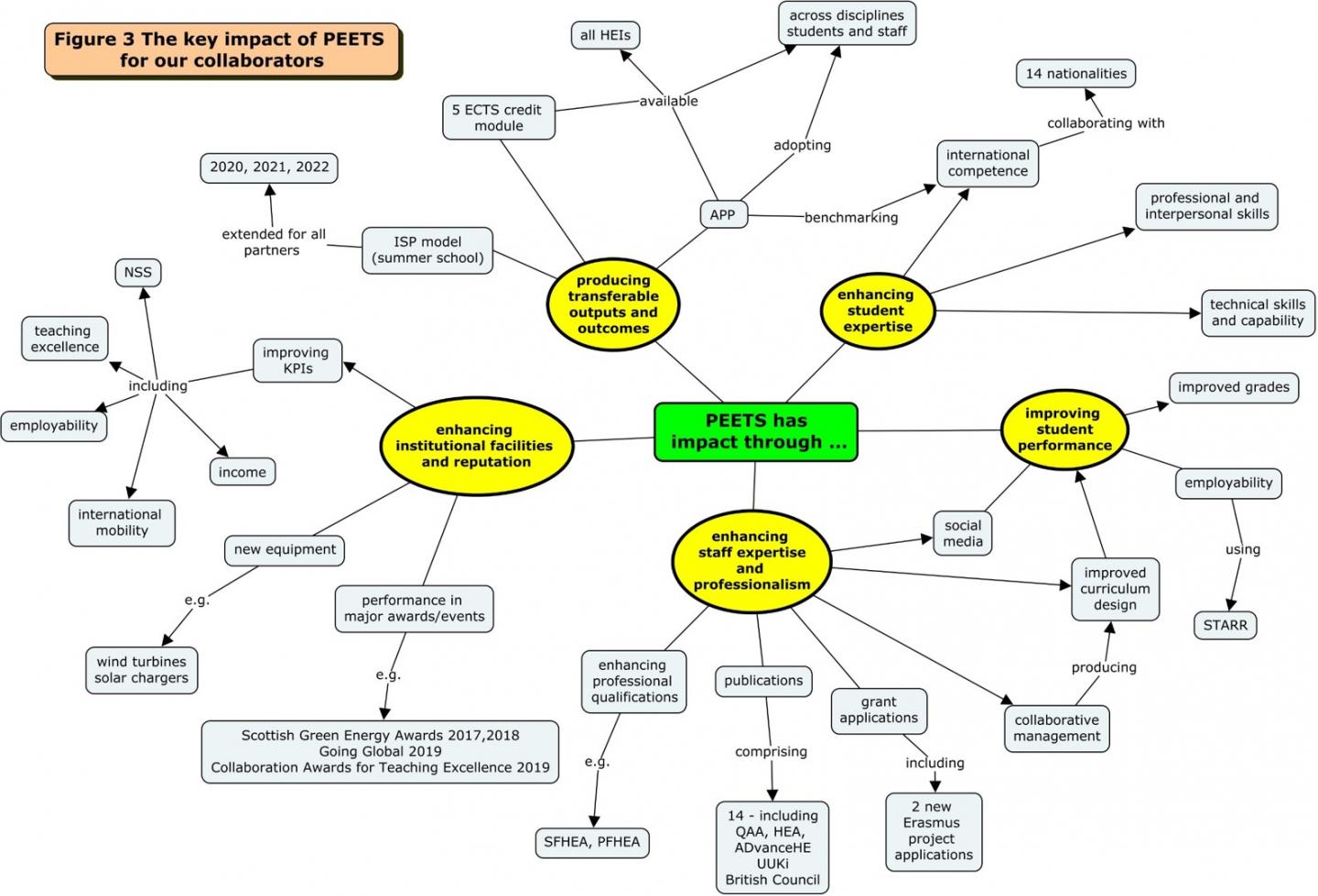
It’s a really effective way to illustrate the broad range of impacts through a number of shared thematic priorities including:
- Student experience and performance
- Staff expertise and professionalism
- Institutional impact
- Transferable learning outputs
We know we have come a long way from a group of like-minded staff keen to support our students develop into employable “global citizens”. Through excellent collaboration, we have all developed and improved as learners, teachers and learning facilitators.
Together, we have produced transformative experiences for our students and staff and delivered significant impacts across our institutions as a high-performance multi-disciplinary and intercultural team.
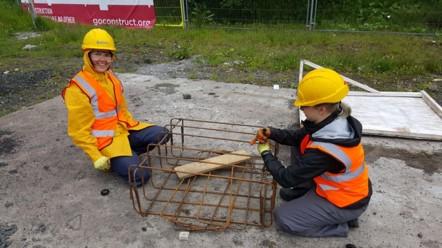
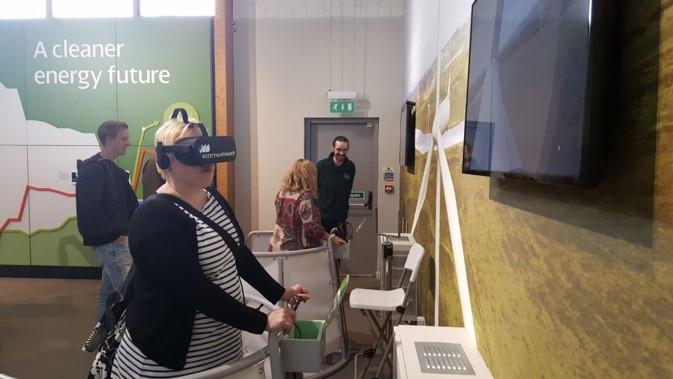
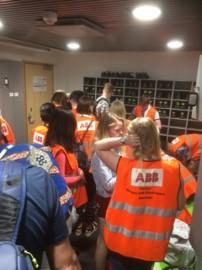
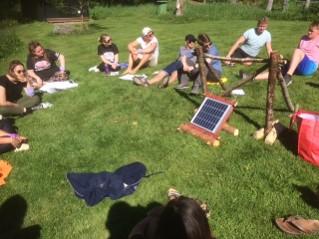
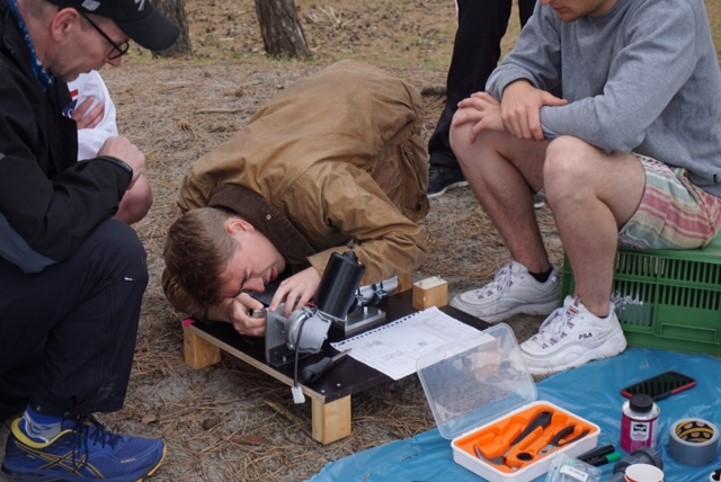
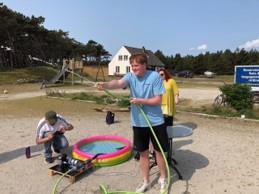
PEETS is a collaboration of Glasgow Caledonian University, Lahti University of Applied Science, The Hague University of Applied Science and Constructionarium (Scotland) Ltd. A multi-disciplinary initiative to develop students’ potential through studying abroad is having success at three European universities in partnership with industry. The PEETS project is enabling students/staff from Scotland, Finland and the Netherlands to become global citizens through building renewable energy installations like wind turbines in each other’s countries.
Bob is a Professor of Learning and Teaching with a PhD in Public Health Engineering and more than 20 years’ experience in academia including leading a Programme Leader and Research Centre. As Principal Investigator of the PEETS Erasmus+ Strategic Partnership, his focus now is the development of employability attributes for students.
Read more about the Collaborative Award for Teaching Excellence including other 2019 winning team profiles.